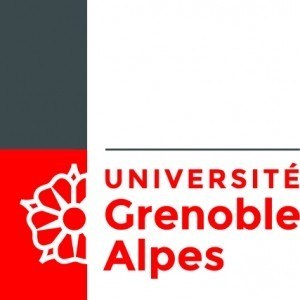Photos of university / #imperialcollege
"Metals and Energy Finance at Imperial College London is a comprehensive postgraduate programme designed to equip students with the advanced knowledge and practical skills necessary to excel in the dynamic global commodities markets. This specialised course provides an in-depth understanding of the financial mechanisms that underpin the metals and energy sectors, focusing on areas such as trading strategies, risk management, market analysis, and commodities pricing. Students will explore the intricacies of physical and financial trading, learn about the regulatory environment impacting the commodities industry, and develop expertise in financial modelling and derivatives used in the sector. The programme combines rigorous academic coursework with industry-relevant case studies, ensuring graduates are well-prepared to address real-world challenges faced by firms in metals and energy markets worldwide. Delivered by leading academics and industry experts, the course leverages Imperial College's strong links with global energy and metals companies, offering networking opportunities and practical insights into current market trends. The curriculum also emphasizes sustainable energy development and the shift towards cleaner technologies, preparing students to contribute to the evolving landscape of energy finance. Students will gain crucial analytical skills, including data analysis, financial modelling, and strategic decision-making, making them highly competitive in careers such as trading, asset management, risk consultancy, and policy development within the metals and energy sectors. The programme is suitable for recent graduates with backgrounds in finance, economics, engineering, or related fields, as well as professionals seeking to specialise or update their knowledge in commodities finance. Graduates of the Metals and Energy Finance programme will be positioned at the forefront of innovation and finance within critical sectors that drive the global economy."
The Metals and Energy Finance MSc program at Imperial College London offers students a comprehensive education in the financial aspects of the metals and energy sectors. This specialized program is designed to equip students with the essential skills and knowledge necessary to excel in the dynamic fields of commodities and energy finance. Throughout the course, students will explore a wide range of topics including financial modeling, risk management, market analysis, and the intricacies of trading and procurement in metals and energy industries. The curriculum emphasizes both theoretical understanding and practical application, preparing graduates to navigate complex financial instruments, develop strategic investment decisions, and address the unique challenges faced by these sectors.
Students will engage in rigorous coursework that covers energy markets, commodity trading, project finance, and the legal and regulatory environment shaping the metals and energy industries. The program also includes advanced modules on financial derivatives, hedging strategies, and the role of financial institutions in these markets. Practical skills are further honed through case studies, industry projects, and simulations that mimic real-world scenarios faced by professionals in the field.
The program benefits from Imperial College London's close ties with leading financial institutions, energy companies, and commodity traders, providing students with excellent networking opportunities and exposure to the industry. The faculty comprises experts with extensive experience in finance, economics, and the energy sector, ensuring that students receive both cutting-edge knowledge and industry insights.
Graduates of the Metals and Energy Finance MSc are well-equipped to pursue careers in investment banks, commodity trading houses, energy companies, project finance advisory firms, and regulatory agencies. The program's multidisciplinary approach and focus on practical skills aim to foster innovative thinking and strategic decision-making. By combining rigorous academic training with industry insights, Imperial College London prepares students to become leaders in the global metals and energy finance industries.
The MSc in Metals and Energy Finance at Imperial College London requires applicants to hold a good bachelor's degree or equivalent in a relevant discipline, such as engineering, natural sciences, or economics, with a strong quantitative background. Applicants must demonstrate proficiency in mathematics, statistics, and financial analysis, often evidenced by prior coursework or professional experience. Additionally, a solid understanding of the energy or commodity sectors is preferred, although not mandatory. Candidates are expected to submit an online application form, including academic transcripts, a comprehensive CV outlining relevant work experience, and a personal statement explaining their motivation for pursuing this programme and how it aligns with their career goals. Two letters of recommendation from academic or professional referees are required to assess the applicant's suitability and potential for success. English language proficiency must be demonstrated through tests such as IELTS or TOEFL if the applicant's first language is not English; the minimum accepted scores are IELTS 7.0 overall with at least 6.5 in each component, or TOEFL 100 (internet-based). Work experience in the energy, commodities, or finance sectors is advantageous but not essential. The programme may also require a personal interview or assessment as part of the selection process. Funding and scholarship opportunities are available, but eligibility criteria vary, and applicants are encouraged to explore options early. The programme emphasizes quantitative skills, sector-specific knowledge, and practical capabilities, preparing graduates for careers in trading, risk management, investment banking, or consultancy within the metals and energy industries. The curriculum includes core modules in financial markets, risk management, and energy economics, alongside specialized courses in metals and energy commodity finance, derivatives, and project finance. Overall, successful applicants will demonstrate academic excellence, relevant motivation, and a clear commitment to advancing their careers in the fast-evolving metals and energy finance sector.
The MSc in Metals and Energy Finance at Imperial College London offers a comprehensive curriculum designed to equip students with advanced financial skills relevant to the metals and energy sectors. The programme emphasizes practical knowledge of financial markets, risk management, commodity trading, and investment strategies tailored to the resource industries. Students benefit from a blend of theoretical coursework and real-world applications, including case studies and industry projects, facilitated by faculty with extensive industry experience. The programme covers essential topics such as derivatives, structured products, project finance, and sustainable investment, preparing graduates for careers in trading houses, investment banks, commodity firms, and energy companies. The programme's financing studies focus on understanding the various funding mechanisms used in energy and metals projects, including debt, equity, and hybrid financing structures. It also delves into the valuation of resource assets, financial modelling, and the analysis of market dynamics affecting commodity prices. Additionally, students learn about the regulatory environment and geopolitical factors influencing the energy and metals sectors, which are integral to making informed financial decisions. The programme offers opportunities for internships and networking with industry professionals, enabling students to gain practical insights and establish valuable contacts. Imperial College London's strong links with industry players and alumni provide a solid foundation for career placement after graduation. The programme aims to develop graduates who are capable of assessing financial risks, designing innovative financing solutions, and contributing to sustainable development in resource industries. Overall, the MSc in Metals and Energy Finance combines rigorous academic training with industry-focused practical skills, ensuring graduates are well-prepared for the complex financial landscape of the energy and metals sectors.
The MSc in Metals and Energy Finance at Imperial College London is a specialized postgraduate program designed to equip students with a comprehensive understanding of the financial mechanisms underpinning the metals, minerals, and energy sectors. This program is tailored for individuals aiming to develop expertise in commodity finance, trading, risk management, and investment analysis within these resource-intensive industries. Through a rigorous curriculum, students gain insights into market dynamics, commodity derivatives, project valuation, and the operational aspects of energy and metal markets, including oil, gas, electricity, and mineral commodities. The program also emphasizes the importance of sustainability, regulatory frameworks, and technological advancements impacting these sectors. Delivered by Imperial College Business School and involved faculty with industry experience, the course combines theoretical foundations with practical applications, including case studies and live projects. Students have opportunities to engage with industry professionals, participate in simulations, and access Imperial’s extensive alumni network and corporate partnerships. Graduates of this program often pursue careers in investment banking, trading houses, commodity producers, energy companies, or risk management firms. The program also prepares students for roles in consulting, policy advisory, and financial services that require specialized knowledge on metals and energy markets. The curriculum is structured over a full academic year, with options for full-time study, providing a balanced blend of finance, economics, environmental considerations, and technology. Admission requirements typically include a strong quantitative background, relevant work experience, and motivation to work in the metals and energy finance sector. Overall, the MSc in Metals and Energy Finance offers a unique platform for developing the skills and industry connections needed to excel in these dynamic markets.







